Every year, thousands of homeowners are forced to call a plumber.
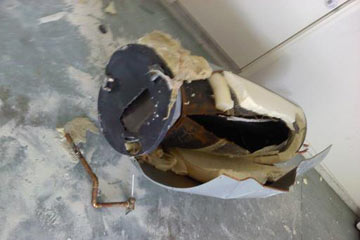
In some cases, water pipes broke and caused the kitchen to flood. However, burst pipes aren't the only reasons to call a professional plumber. Many homeowners don't understand the value of hiring a licensed plumber, and there are several reasons why licensed plumbers are the best options.
When homeowners try to save money, they end up hiring an unlicensed plumber, which is a decision that can end in a nightmare. Even worse than hiring an unlicensed plumber, some homeowners try to repair the plumbing themselves. The main reason to hire a licensed professional is safety.
Professional, licensed plumbers are much less likely to put your family at risk. Licensed plumbers are also much more likely to deliver a higher quality of work. In every area of the country, there are building codes and permits. When it comes to plumbing, there is no shortage of ways to perform the job incorrectly. A top reason to hire a licensed plumber is because they follow the latest building codes, which means they perform safer repairs.
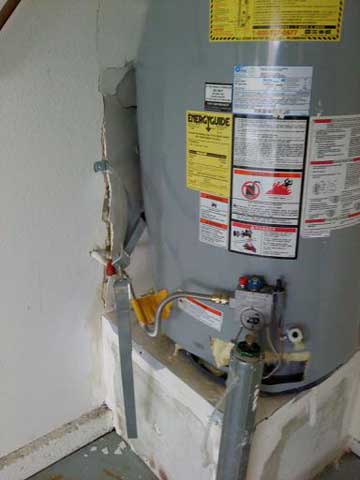
There are many types of plumbing repairs that are not supposed to be performed by an unlicensed plumber. For example, unlicensed plumbers aren't allowed to completely replace a water heater. Many homeowners think that a plumbing license is just a piece of paper, but it actually represents training, exams and more.
Before getting licensed, a plumber is required to meet specific state education requirements and credentials. He or she must also pass an exam and obtain legal permission to perform plumbing services in the state. The requirements for licensing are different for every state.
If you choose not to hire a licensed plumber, you have no way of guaranteeing that skill, training or education of the individual performing the repairs. Since some plumbing problems can lead to explosions, it's not a good idea to go this route. Incorrect plumbing repairs have been known to cause illness, injury or death.
Types of Plumbing Explosions
A lot of homeowners have only heard about plumbing explosions in the movies. However, in some area of the country, plumbing explosions occur every day, but they're rarely covered by the media, so it might not seem like they occur very often. The reality is that many homeowners allow unlicensed plumbers to perform repairs, which can end with some part of the plumbing system blowing up.
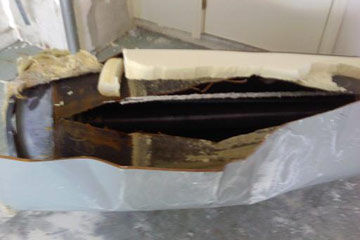
Most plumbing explosions occur in the water heater. If a water heater isn't maintained or installed correctly, it can lead to a massive explosion. Although it's quite rare, a water heater can cause an explosion that is large enough to level a smaller home and blast the heater several hundred feet into the air. The major causes of water heater explosions are problems with pressure and temperature relief valves. Most people don't realize just how important these valves are for preventing an explosion.
It's true that a water heater won't explode because of pressure alone, but when high pressure and temperatures are combined, it can have catastrophic consequences for homeowners. There aren't too many different types of plumbing explosions, and the most common type is known as a BLEVE, which stands for boiling liquid expanding vapor explosion.
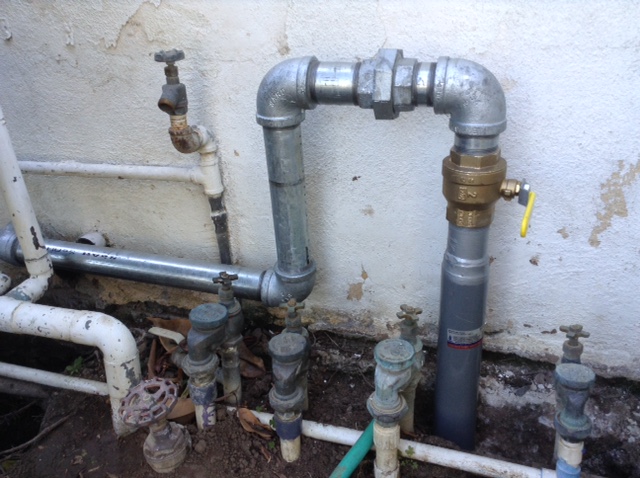
The explosion occurs when a water tank ruptures while holding liquid that is way higher than the atmospheric boiling point. An explosion occurs because the superheated liquid is under over 200 PSI of pressure, so when the tank becomes ruptured, the liquid begins to boil violently and expand. The end result is a massive explosion, which has the potential to level an entire section of a home.
Another type of plumbing explosion is caused by natural gas, but it's a direct result of hiring an unlicensed plumber. A typical home has many types of pipes under it. There are pipes for water, natural gas, sewage and more. The problem occurs when an untrained plumber purges a gas line before connecting the proper fixture. As a result of this incompetence, the enclosed space that the plumber is working in can fill with natural gas, which can lead to a massive explosion.
Examples of Plumbing Explosions
There are countless examples of plumbing explosions in the news because these issues have been occurring for decades. One of the best examples is the recent plumbing work in the East Village explosion. Plumbing contractors were working in a 2nd avenue building, and they didn't have the required permits to perform the repairs.
The explosion was caused by a plumber who didn't leave enough room for a new gas meter, so the natural gas wasn't allowed to flow in through the correct piping. Two people were killed in the explosion, but with the size of the blast zone, many more lives could've been lost. The plumber had illegally tapped into the building's gas line, and it ended up causing a deadly explosion.

Another example is a water heater explosion in Damariscotta, Maine. The water heater inside of a camper suffered a propane leak, which spawned a fire. This is an example of what can happen when water heaters that are powered by natural gas rupture.
There are many more examples of plumbing explosions, and it's important to remember that a large percentage of these explosions are caused by faulty repair work. Some plumbers are licensed but don't follow relevant building codes, and there are unlicensed plumbers who should never be trusted to perform the work in the first place.
Causes of Plumbing Explosions
Plumbing explosions can be caused by many different problems, but some causes are much more common than others. Water heaters are one of the most well-known causes of plumbing explosions, and a common cause for the explosion is an inoperative or seized temperature pressure relief valve. To eliminate this issue, it's important to have the TPR periodically checked by a licensed plumber.
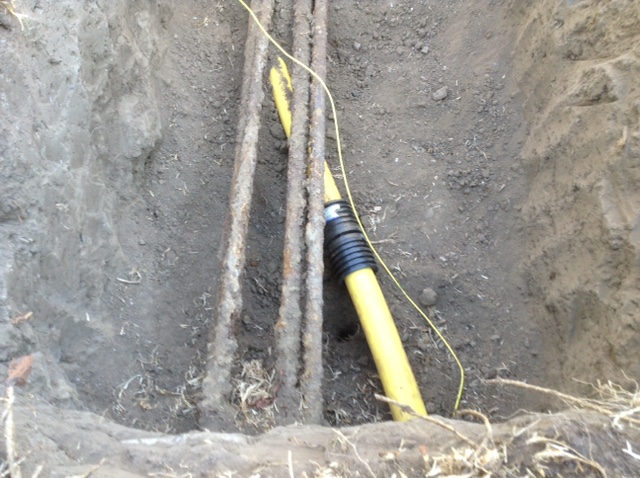
Another cause is incorrect settings for pressure controls and thermostats. Capped or blocked TPR discharge lines are another cause. When these lines are blocked, they cause pressure to accumulate, and eventually, the pressure becomes too much for the system to handle, and an explosion occurs.
All water heaters are supposed to have safety devices, and if these devices are removed, it can cause an explosion. Gas line and valve leaks can also cause a plumbing explosion. For greater efficiency, a number of water heaters are powered by natural gas because it's affordable and efficient.
However, if the gas line that feeds into the water heater becomes ruptured, it can lead to a massive explosion. Several homeowners have died from this exact scenario. Improper installation of pipes can also cause something to explode.
The accumulation of sewer gases is another potential cause of a plumbing explosion. Whether it is sewer, gas or water lines, everything needs to be installed correctly. Most homeowners would be surprised to learn that the tiniest installation problems have the potential to cause a huge explosion. The best way to prevent these problems from occurring is to hire a licensed plumber.
Symptoms and Signs of Problems
To avoid a catastrophic plumbing explosion, there are many signs and symptoms that homeowners should watch for. It's not terribly uncommon for sewer lines to rupture and cause sewer gases to accumulate inside of a home. The decomposing waste inside a home's sewer system produces gases.
The most common type of gas that is produced by sewage is methane, and methane has the potential to explode. Sewage also produces hydrogen sulfide. When combined or alone, methane and hydrogen sulfide are explosive gases. If the gases are able to accumulate in an enclosed section of a home, they'll explode if they come into contact with an ignition source.
To prevent this from happening, homeowners should check for the smell of rotten eggs. Hydrogen sulfide is the explosive gas that is responsible for this characteristic smell. To avoid sewer gas explosions, another warning smell is ammonia, which irritates mucus membranes and sears the nostrils.
Another sign to watch for is dried-out plumbing fixtures and piping. Most sewer gas buildups are caused by the deterioration of the water barrier that prevents the gases from going back into the residence. When a water heater gains the potential to explode, it will produce some warning signs.
If your water heater is powered by natural gas, then you'll want to check for hissing sounds around the heater, which could indicate a gas leak. Depending on where the leak is located, it can also cause a blowing noise. These are some common signs and symptoms of plumbing problems that have the potential to cause a deadly explosion.
The Importance of Plumbing Inspections and Maintenance
Many homeowners don't understand the importance of inspections and periodic maintenance. A lot of people are guilty of purchasing a water heater and waiting decades to have it inspected or maintained. The problem is that waiting too long for professional inspections and maintenance can lead to a serious explosion.
For example, the TPR valve might randomly stop working, which is likely to cause the water heater to explode. If sewerage pipes aren't maintained periodically, they can rupture and cause a home to fill with toxic and explosive gases, such as methane and hydrogen sulfide. The best way to prevent serious plumbing catastrophes is to have your home's plumbing inspected by a licensed plumber.
Virtually every aspect of a home's plumbing system requires maintenance, so it's very important to have pipes and fixtures periodically maintained. If you haven't had your home inspected in a long time, then it's a good idea to schedule a whole-house plumbing inspection.
Licensed plumbers will be able to tell you if there are any major problems and correct them before they cost you thousands. Water heaters should be periodically inspected and maintained because they can cause the most damage.
Most homeowners don't know what type of maintenance is needed for water heaters, water pipes, sewage pipes and plumbing fixtures, so they cannot determine if maintenance or repairs are needed. Licensed plumbers have the knowledge, experience and skill to inspect a home's plumbing system and deliver vital maintenance, which can prevent costly repairs and even plumbing explosions.
